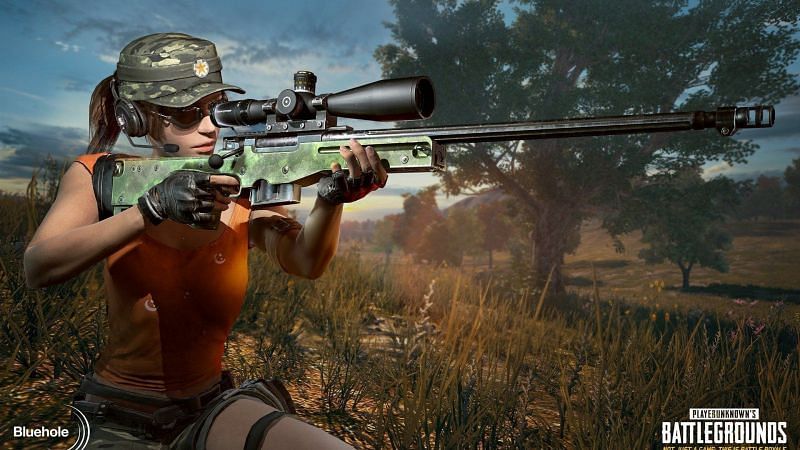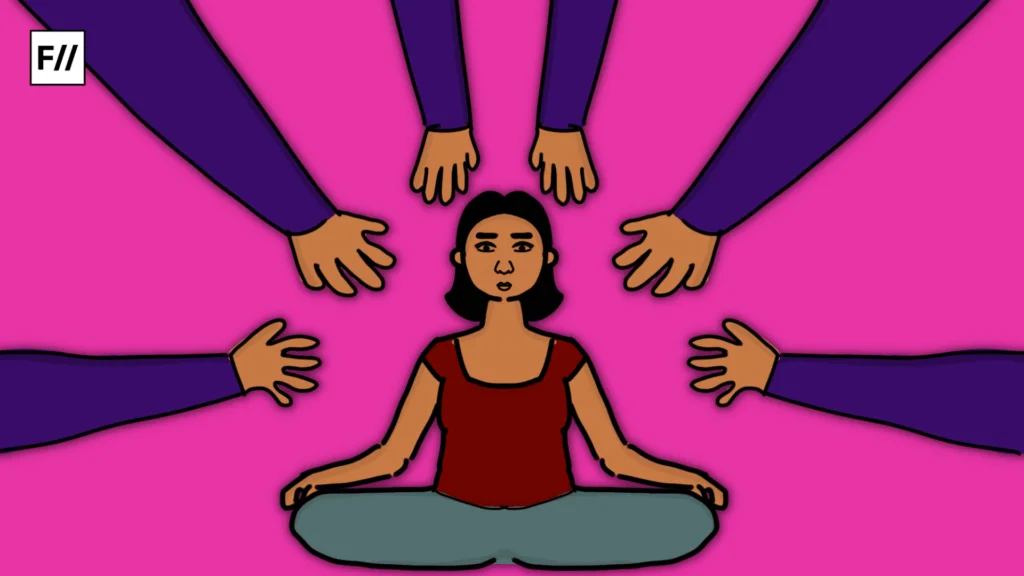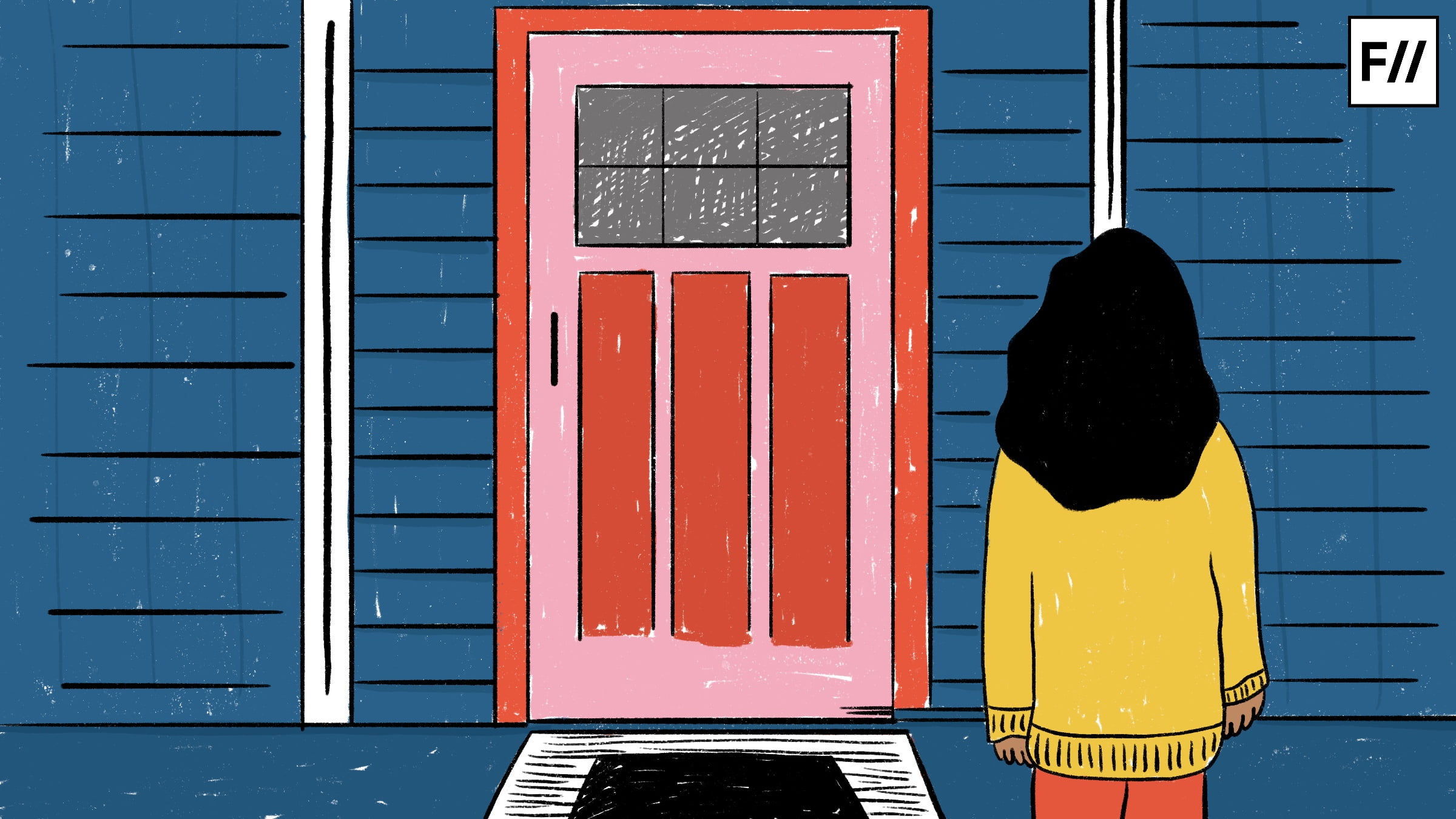Editor’s Note: This month, that is September 2020, FII’s #MoodOfTheMonth is Boys, Men and Masculinities, where we invite various articles to highlight the different experiences of masculinity that manifest themselves in our everyday lives and have either challenged, subverted or even perpetuated traditional forms of ‘manliness’. If you’d like to share your article, email us at pragya@feminisminindia.com.
Even if one was living under a rock, one would have heard of the popular video game, Player Unknown’s Battleground, or PUBG. Inspired by the Japanese movie “Battle Royale”, it is a survival game where 100 players are dropped in a virtual landscape where teams of four battle it out. The game is an interactive online experience, that can be shared, either with friends or strangers. Officially launched in 2017, the game boasts of owning the maximum market share with more than 100 Million downloads on Google Play Store and over 30 Million daily active users worldwide.

It is a violent show of survival streak where there is no common enemy, but an apocalyptic setting where the ‘fittest’ survives. The survival instinct is judged by the hypermasculine enthusiasm to kill and destroy. The game does require teamwork and might encourage the spirit of friendship in teams, but obscenely breaches any idea of human values or sympathy.
It is a violent show of survival streak where there is no common enemy, but an apocalyptic setting where the ‘fittest’ survives. The survival instinct is judged by the hypermasculine enthusiasm to kill and destroy. The game does require teamwork and might encourage the spirit of friendship in teams, but obscenely breaches any idea of human values or sympathy.
With diminishing the ‘feminine traits’ of survival such as sympathy, co-existence, or ecological empathy; the game encourages narcissistic toxic masculinity with the tendency of placing the ‘self’ before any other and othering even the members of the team. The game that claims to promote the ‘ideals’ of teamwork is designed to declare a winner, even when the teammates have been eliminated. The “winner-winner-chicken-dinner” might be served to the entire team, but can be won by a single player.
I witnessed the addiction to this game in March last year, when a colleague would opt out of lectures and team meetings, even dates with his girlfriend to play PUBG. Observing his body language throughout the game, the blessed language used in chats, and the edge-of-seat interest it creates, I immediately took notice. The game at its outset is an innocent video game channeling an obscene revenue and generating membership so much so that it has official PUBG tournaments on a world level.
Shrinking global boundaries, PUBG also shrank gender tolerance. Not to say that women do not play the video game, but the way they are treated after accepting their real gender identity on a virtual platform, shrinks the virtual space for them. Many Indian women gamers have admitted to having limited their exposure to PUBG to only their friends and family. They prefer not to play with strangers, for the fear of cussing and diminishing their existence, and the bias towards women gamers. The masculinity that PUBG constructs in its wake is not limited to scaring off women from virtual platforms, but is also of constructing an enemy and instilling the need to kill and take revenge.
A study conducted in Pakistan claimed that PUBG was encouraging team spirit and had positive social effects on its players, admitting that an average player devoted around 6 hours to the game every day. While the study rubbished any claim of a developing narcissistic trends in the players, it left out arguments concerning the gamer’s perception of themselves. The language used during matches is unapologetically advertised on YouTube streams and ‘men’ find a strange sense of Bourgeois acceptance in it.
Shrinking global boundaries, PUBG also shrank gender tolerance. Not to say that women do not play the video game, but the way they are treated after accepting their real gender identity on a virtual platform, shrinks the virtual space for them. Many Indian women gamers have admitted to having limited their exposure to PUBG to only their friends and family. They prefer not to play with strangers, for the fear of cussing and diminishing their existence, and the bias towards women gamers.
The fantasy of success created by sophisticated systems of score tally and in-app purchases and ranks construct a result-driven restless team of masculine subjects. The reward circuit creates an eager population that would keep returning to earn a false sense of validation. The masculinity constructed is not merely narcissistic but a pre-Oedipal infantile psychology that demands to be seen and appreciated. In the wake of the dire need of acceptance, the frustration is borne by the other (the woman), both virtually and physically.
Also read: Why We Need To Reject Toxic Masculinity For Better Mental Health
A Chinese research guides the makers of PUBG to design their algorithm keeping the gender parities in mind. It proves how women yearn for trust and loyalty from fellow team members and therefore, must be matched with other women. The justification the research provides is that as men are competitive and confident in leading in the game, their space must be constructed differently. Women must be ‘safe’ and ‘loyal’ on the virtual platform. The PUBG platform thus, appears like the micro-virtual-rendition of an unsafe street in a metropolitan, where sisterhood is appreciated and men act like the protectors.

A major psychological masculine construction of PUBG is its construction of enemies. The history of virtual games has witnessed aliens and rapists and murderers as monsters, the games were destined as chase sequences to catch and kill the ‘bad guy’. Masculinity is never an independent construction; its first aim is to confine ‘femininity’ and the second, to construct a macho. Macho is the man who kills the monster. Hindu mythology is laden with examples of ideal men hailed for killing the evil in violent battles. The Ram vs Ravan or the Mahabharata narrative construct men who are machismo, but also the regulators of morality in a society.
What happens when the monsters become a fellow human?
PUBG becomes an akhada of a man fighting another man, for survival. A cockfight, but virtual. When Shelley constructed Frankenstein; it was a critique of monsters created by men, in his own image. But PUBG creates monsters as fellow innocent humans. The ‘enemy’ now could be a minor sitting in his basement or a colleague. The ferocity of following him through the battlefield, taking aim and shooting until he dies and a green flare is released is constructing a violent prototype. Not to say that PUBG players become violent individuals, but their life decisions are shaped by the macho-toxic-masculinity. The virtual platforms are creating a population of “heroes”, who can fight from the gaming chairs. Being a man would now include abusing and giggling at a co-player’s death.
Also read: Arnab Goswami – Our Prime Time Poster Boy For Toxic Masculinity…
The idea of winning a battle with wit is far removed and the celebration of a violent aggressive assertion of a man who curses and favors his life over his friends’ is celebrated. At the socially testing times, ‘men’ are locked in their rooms playing a video game and intoxicated by the anesthetic of virtual toxic masculinity.
Featured Image Source: DNA India






Pubg is epitome of toxic masculinity and it encourages men to shame women. Glad this game is no more. Come on guys let’s give all the power and authority to women and let’s abolish patriarchy and instead build matriarchy. Female supremacy is the way to future.
Supremacy in any form is toxic. Matriarchy won’t stop the oppression but just subvert it. The answer to patriarchy is gender equality in my view and not matriarchy.
This article doesn’t make sense. Even if teammates are eliminated, they are still involved in active communication with the player still alive to guide them to victory. You talked about digital validation with in game rewards. These rewards are given to all players of the team even if one wins. The argument about the game not being about teamwork is false. Also, in the same para, you equated “winning” with hyper masculinity ????because women don’t like winning???
Gaming addiction is a serious mental problem recognized by the WHO and isn’t exclusive to just PUBG Mobile. You using a mental problem, gaming addiction, which is often associated with other mental illnesses to promote your “idea” that the game is about toxic masculinity is wrong. Please help your colleague and refer him to a therapist.
Women not preferring to play with strangers isn’t something that’s exclusive to PUBG Mobile. Women across the internet don’t talk with random people for the same reasons mentioned in this article. You can basically call the entire internet “hyper, toxic, and masculine” based on that. Instead of blaming the game, we should work to ensure how the internet in general can become safer for women. I am aware of some amazing women in gaming and esports who are working to do this.
You talked about digital validation through in game rewards. This is how the game works and ensures players return to play the game. It isn’t masculine at all as literally every other thing on the internet does it. Instagram, Facebook, does it via likes and comments. Snapchat does it through a virtual snap score. Is this a problem? Yes. Is this problem only in PUBG MOBILE? No. Do only men suffer from seeking digital validation? No.
“PUBG becomes an akhada of a man fighting a man.”
The game has a HUGE female player base, including PUBG tournaments only for women gamers. Would you say that these women propagate toxic masculinity just by playing the game? You do know that the game has playable female characters right?
‘the enemy could be a minor sitting in his basement or a colleague.” This is literally every Multiplayer GAME ever created in history in which people play against each other. Is the entire gaming industry promoting toxic masculinity? Communities such as of League of Legends esports have been known for being very vocal about social issues particularly about the LGBTQ+.
“The idea of winning a battle with wit is far removed.” This statement here basically says that “I have never played the game but oh well I guess it is a platform for promoting toxic masculinity.” Games like PUBG are all about teamwork and wit. The map is freaking huge with different terrain across. Planning accordingly is the only way to win. In most fights, the team which was in a better position on the map wins. It’s all about intelligent planning.
“A man who favours his life over his friends?” You do realise that it is a team game and the only way to really ensure you win is making sure all of your friends are alive till the very end. You can literally revive your friends when they get knocked down.
Hey WA
You and I clearly have very distinct ideas about the game and what masculinity means. Your bias for game is pretty visible in the comment and I respect that, but before you say it outright doesn’t make sense, lets hear both sides.
So, your first allegation was that the author doesn’t understand that game requires teamwork. I very well acknowledge teamwork, also quoting a Pakistan report. But another Chinese report suggests the makers of PUBG to tweak ‘teamwork’ according to gender, women must be matched with other women to promote loyalty and trust. Are we still that naive to ignore that game algorithms are gender biased?
Your argument of Internet being biased is true, but going with the thought process that because other games are biased I must not call out PUBG, it would mean that I must never question a single instance of misogyny because the world is a patriarchal construction. Masculinity is a construction, it is not a shell we put men in, even women can be masculine and vice versa. If the argument is that women like winning, they sure do, I have even linked odes to some national and global level PUBG tournament women gamers. The incessant need of validation was a psychological enquiry into the robust need of virtual validations. Not only internet but physical world is also driven by validation and results, but the algorithms kill any chance of healthy competition. The argument that addiction is a separate study and reward points a different field is baseless because validation is the bait with which addiction is injected. And if you want to debate about the division of labor for the love of validation, then please refer decades back to the argument of men being chefs and women being home cooks. Men tend to flock towards adrenaline driven, validation oriented labour.
When you mock my statement of winning a PUBG battle with wit, I leave it to your evolved senses to judge what faculty is more stretched, strength or wit. Wit doesn’t mean intelligence or planning, it means defeating the enemy through fooling him and not violently terminating him. And please don’t brag about the literal reviving of friends. PUBG is a self before team game, would you ever in an active game get yourself shot in order to revive your friend? You may provide him a revival only when assuring that you are safe, hence the Narcissism. You don’t need to oblige me with agreeing but a lot happens at the back end of any endeavor which is gender biased from the beginning, and hence what it creates is a biased platform. And please don’t tell me it’s an equal platform or that women may choose women avatars, because from the algorithm to the players, they are all covered in biases. Bias is not always a bad thing though, I just said they were constructing masculinity, never demonized the act. For a funnier sense of bias you could click on the video link below, it will be worth your 2 mins 🙂
https://www.youtube.com/watch?v=H4Viz9bFhJw